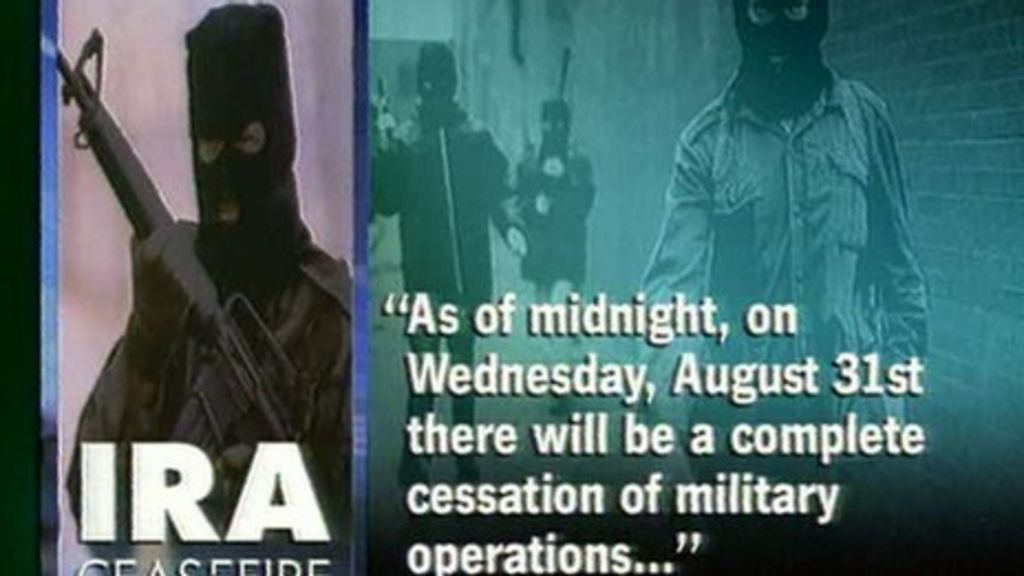Official acknowledgment that the Provisional IRA still exists, albeit in a form distinct from the years when it was engaged in armed conflict with the British state, has led to calls for the resurrection of an independent group, separate from the PSNI, to once again monitor Northern Ireland’s paramilitary ceasefires.

Lord John Alderdice, one of the four commissioners of the Independent Monitoring Commission, established in 2003 by agreement of the British and Irish governments to do just that in an effort to build trust and confidence between parties as the peace process moved forward, last week threw a bucket of cold water on the idea, telling the BBC that “the IMC was appropriate for the time and it worked but I don’t think it would be an appropriate thing to bring it back.”
I first interviewed Alderdice in early 2010 as part of the research that I have been doing on the maintenance and durability of the peace process. One of the issues I was interested in understanding was how the Provisional Movement had managed to bring so many of their volunteers along as the transition was made from armed struggle to constitutional politics.
What Alderdice argued to me helps put the recent revelations of the continuing existence of elements of the Provisional IRA into context. Keeping intact a command structure, he contended, was essential to keeping volunteers on side even as the military structures that had prosecuted the war were being wound down.
One of the observations we made was even when they’d got to the point of standing down the military operations and not recruiting, engineering had gone south and all these kinds of things, there still was a necessity – there was a little bit of debate about this when we said it – still was a necessity to keep a kind of Army Council and structures in place as you brought it down because that exercised what you’d call a degree of moral authority, to tell people to “stop it.”
And people stopped, not necessarily because they immediately thought somebody was coming into the back door but because there was that sense of authority.
Alderdice was essentially arguing two things:
First, that the Army Council carried sufficient authority that when they ordered volunteers to stand down from a military posture and transition from being members of an underground army into above-ground political workers, those orders could be expected to be obeyed.
Second, that the volunteers that made up the ranks of the Provisional Irish Republican Army were sufficiently disciplined that they would, on the whole, follow the orders passed down from their leadership. They followed orders not out of fear, but out of loyalty.
This squares with one of the points that Tony Catney made when I interviewed him in 2013:
In 35 years of armed struggle, the membership of the IRA never let the leadership down once. Anything that the leadership asked for they got. They might not have got it to the degree or as quickly as they wanted but they got it to the best of the ability of the volunteers within the IRA. What happened from 1994 onwards was a failure of leadership not a failure of the IRA. It was a failure of the people who made the decisions as opposed to the people who were prepared to honor their commitment to the liberation of Ireland and were quite prepared to do it in a different fashion.
The important point in this context is one that Catney did not make. The discipline within the ranks of the PIRA was powerful enough that when told to stand down, the overwhelming majority of volunteers did. Catney characterized that moment this way:
In August 2005, all volunteers were informed that they were to report in to the chair of their local branch of Sinn Fein, and all their future activity would be directed by Sinn Fein.
Some who disagreed with the decision simply walked away. A few, like Catney, became critics of the Provisional Movement and the political direction its leadership had taken it. And a smaller fraction subsequently threw in their lot with one or another of the armed dissident groups.
Crucially, what those armed dissidents haven’t done is go after the leaders that they accuse of betraying Republicanism. If the IRA had gone away, as so many chose to believe, why hadn’t the dissidents moved against those leaders whom they charge with selling out the cause of Irish freedom in exchange for the Queen’s shilling?
I interviewed Alderdice a second time in 2011, and I asked him specifically about the relationship between the dissidents and the Provisional Movement:
These are people that fell out in a very, very bitter way with Adams and McGuinness. … What happened was they absolutely didn’t agree with Adams and McGuinness, and every time you came to a key moment when something was moving forward, these were the losers. And some of them dropped out, packed it in. Some of them dropped out and said, “Well, we’ll still be here when they’ve betrayed everything.”
He then made two points, that while at first glance appear contradictory, actually make a great deal of sense now given what we have learned about the current status of the PIRA. As much as the dissidents brand the leaders of the Provisional Movement traitors, Alderdice said:
They haven’t the guts to take the Provos on, because the Provos will put them to bed. And in fact, it is ironic. It is because the Provisional IRA is effectively over in a meaningful sense that these guys popped their heads up. Because otherwise they’d have got their heads cut off.
What Alderdice seemed to be arguing back in 2011 was that the PIRA retained enough military capability to defend itself were it to be challenged directly by the dissidents. What it had not given up, however, in standing down from its wartime footing, was an ability to prevent open challenges to its authority.
This, added to what we have learned after the last several weeks, seems to me to offer a compelling explanation for the current landscape of “alphabet soup” IRAs and their apparent unwillingness to move against a leadership whom they have branded the worst kinds of traitors.
The Provos can still “put them to bed” if they try it.
